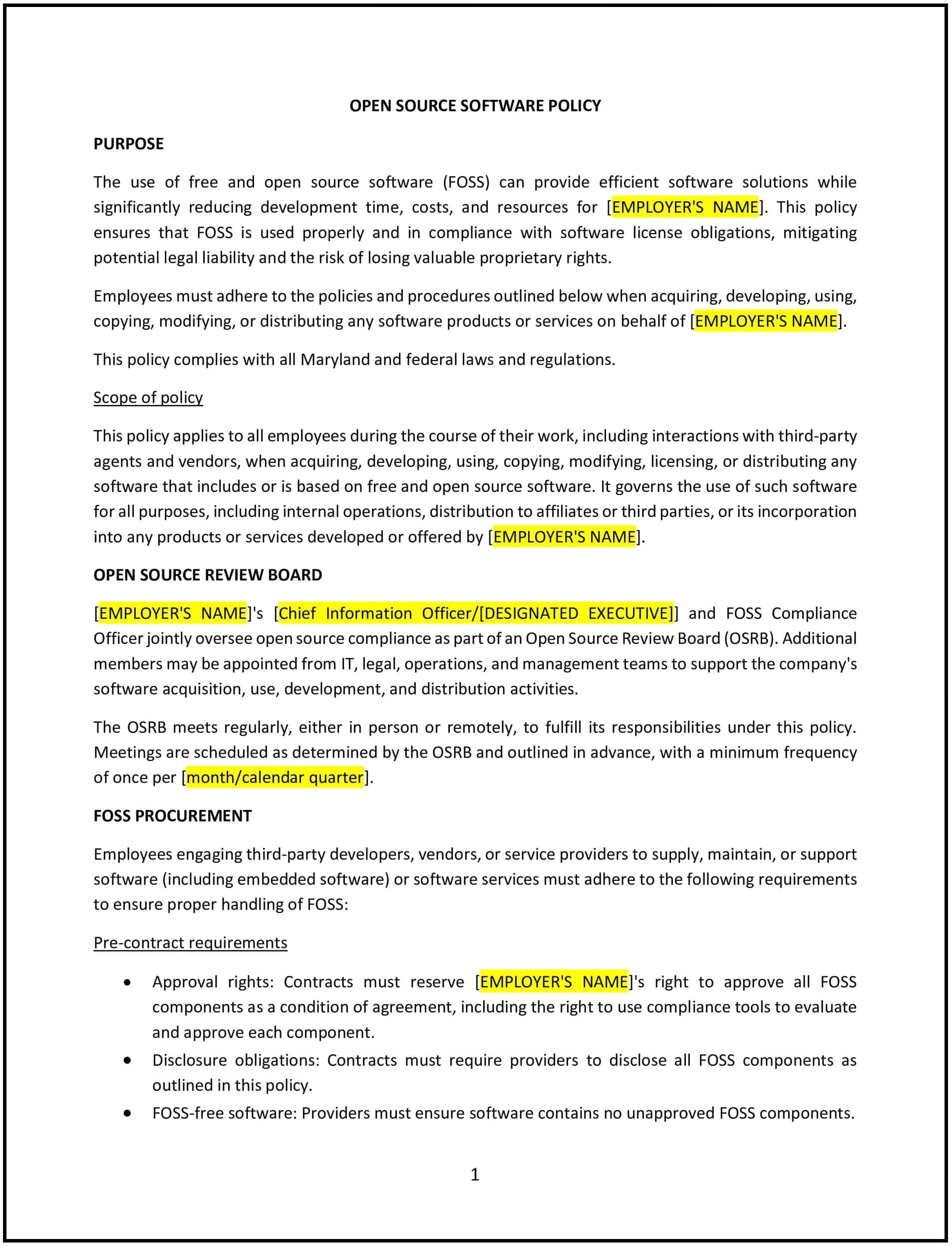Open source software policy (Maryland): Free template
Got contracts to review? While you're here for policies, let Cobrief make contract review effortless—start your free review now.

Customize this template for free
Open source software policy (Maryland)
This open source software policy is designed to help Maryland businesses establish guidelines for the use, contribution, and management of open source software (OSS) within their operations. It provides a framework for ensuring proper use, minimizing risks, and maintaining compliance with open source licenses.
By adopting this policy, Maryland businesses can leverage the benefits of OSS while safeguarding proprietary assets and maintaining operational integrity.
How to use this open source software policy (Maryland)
- Define OSS usage: Specify acceptable use cases for OSS, such as in development projects, testing, or operational tools.
- Establish approval processes: Require employees to seek approval before incorporating OSS into business projects or systems.
- Address license compliance: Include guidelines for understanding and complying with the terms of OSS licenses, such as GPL, MIT, or Apache licenses.
- Set contribution guidelines: Provide protocols for contributing to open source projects, including required approvals and documentation.
- Include risk assessment: Detail processes for evaluating OSS for security vulnerabilities, license risks, and compatibility with business systems.
- Protect proprietary code: Prohibit the unauthorized sharing of proprietary code or resources when working with OSS.
- Reflect Maryland-specific considerations: Incorporate local legal or industry standards relevant to technology and software use.
Benefits of using this open source software policy (Maryland)
Implementing this policy provides Maryland businesses with several advantages:
- Enhances innovation: Enables businesses to leverage OSS for development, reducing costs and time to market.
- Reduces legal risks: Helps businesses avoid violations of OSS licenses or intellectual property laws.
- Promotes consistency: Standardizes how OSS is evaluated, used, and managed within the organization.
- Protects proprietary assets: Safeguards business-specific intellectual property when using or contributing to OSS.
- Aligns with Maryland standards: Reflects local best practices and industry-specific technology needs.
Tips for using this open source software policy (Maryland)
- Train employees: Provide training on OSS license types, compliance requirements, and company-specific guidelines.
- Monitor usage: Use tools to track OSS usage within the organization and ensure adherence to the policy.
- Encourage collaboration: Support employees in responsibly contributing to OSS projects while protecting business interests.
- Update regularly: Revise the policy to reflect changes in Maryland technology laws, OSS license terms, or business practices.
- Maintain documentation: Keep detailed records of OSS evaluations, approvals, and contributions for accountability.